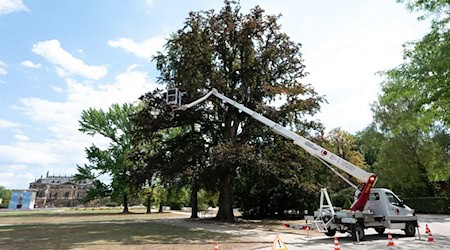The district of Bautzen wants to oblige refugees to do charitable work in future. A corresponding pilot project has been prepared by the immigration office since January, the district announced. Asylum seekers who are in the process of being processed and tolerated are to be obliged to work for state, municipal or non-profit organizations. Similar projects already exist in the shared accommodation facilities. "Now, new fields of work are to be created together with interested municipalities," the press release states.
This is made possible by the so-called Repatriation Improvement Act, which now provides the legal opportunity to offer corresponding work opportunities. According to the district, numerous questions still need to be clarified before implementation, and a concrete timetable is not yet available. The Repatriation Improvement Act was approved by the Federal Council at the beginning of February. It comprises around 40 individual measures, including on deportation procedures and the obligation to leave the country for people without the right to stay.
The Saxon County Association welcomes the opportunities provided by the new law. They are pleased about the simplifications, said spokesperson Benjamin Lange on request. "The Saxon districts have always spoken out in favor of the possibility of employing asylum seekers. In our view, this increases integration on the one hand and can also significantly improve acceptance among the population on the other."
The Saxon Refugee Council is critical of the work opportunities. "These jobs are not really conducive to entering the labor market," said spokesperson Dave Schmidtke. There is no qualification, there is no connection with previous work experience or training. In addition, the existing offers are already being accepted and there is no lack of motivation. "Stereotypes are being used here that people supposedly don't want to work," said Schmidtke.
In the Saale-Orla district in eastern Thuringia, asylum seekers are to be obliged to work four hours a day. This is based on a corresponding regulation in the Asylum Seekers' Benefits Act, as a district spokesperson said on Tuesday. The refugees are to do simple work for 80 cents per hour. If they refuse, they could face cuts of up to 180 euros a month.
Copyright 2024, dpa (www.dpa.de). All rights reserved










